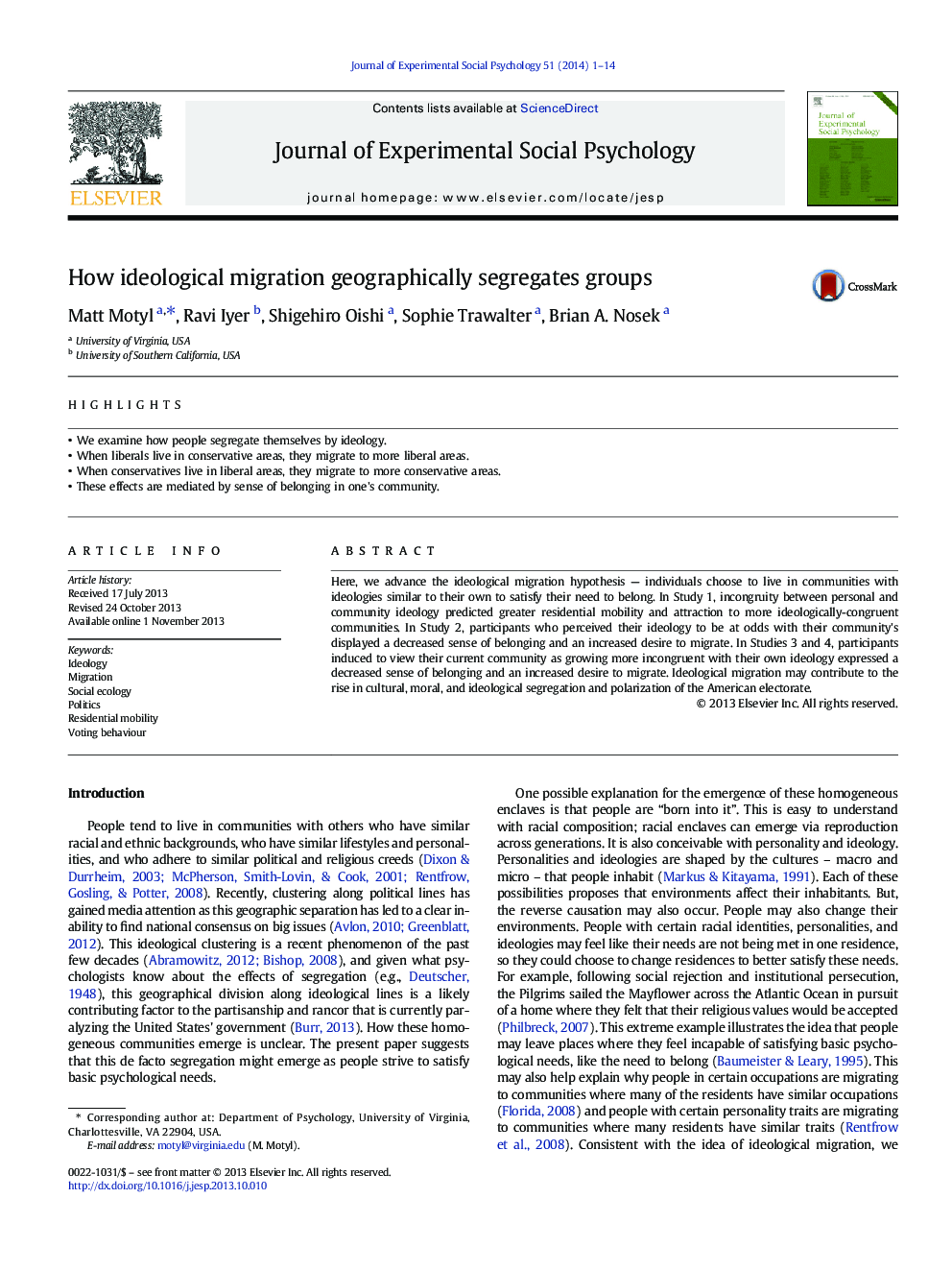| Article ID | Journal | Published Year | Pages | File Type |
|---|---|---|---|---|
| 947769 | Journal of Experimental Social Psychology | 2014 | 14 Pages |
•We examine how people segregate themselves by ideology.•When liberals live in conservative areas, they migrate to more liberal areas.•When conservatives live in liberal areas, they migrate to more conservative areas.•These effects are mediated by sense of belonging in one's community.
Here, we advance the ideological migration hypothesis — individuals choose to live in communities with ideologies similar to their own to satisfy their need to belong. In Study 1, incongruity between personal and community ideology predicted greater residential mobility and attraction to more ideologically-congruent communities. In Study 2, participants who perceived their ideology to be at odds with their community's displayed a decreased sense of belonging and an increased desire to migrate. In Studies 3 and 4, participants induced to view their current community as growing more incongruent with their own ideology expressed a decreased sense of belonging and an increased desire to migrate. Ideological migration may contribute to the rise in cultural, moral, and ideological segregation and polarization of the American electorate.
